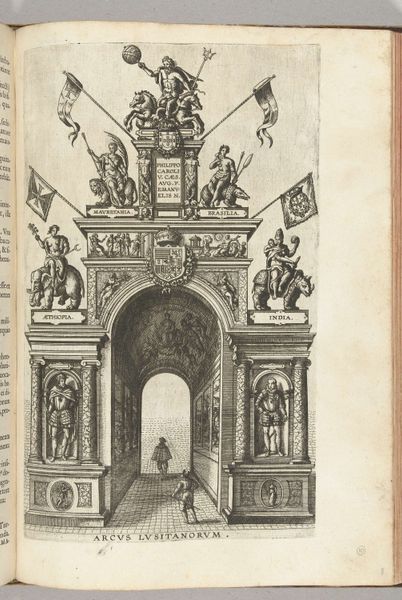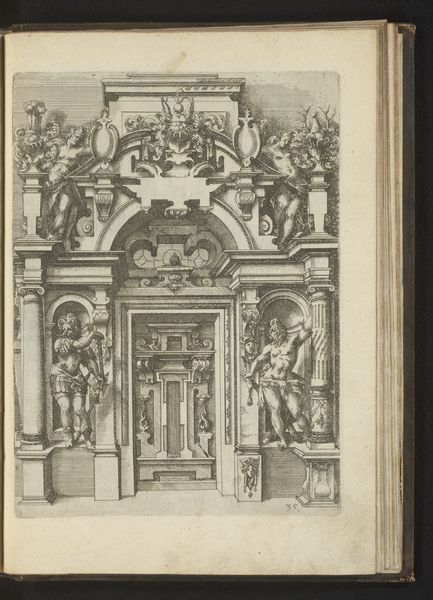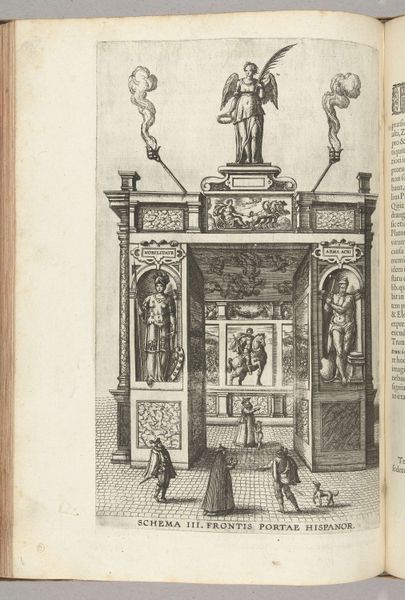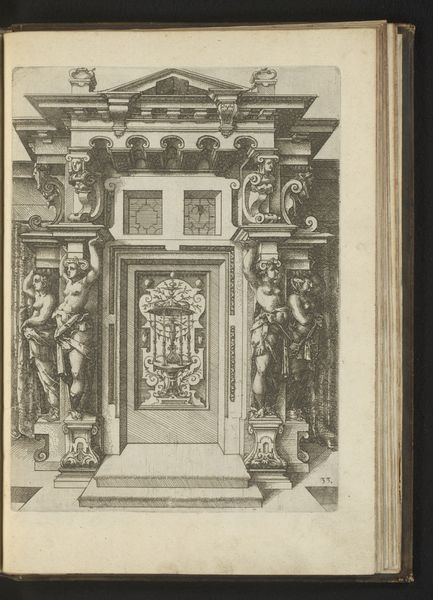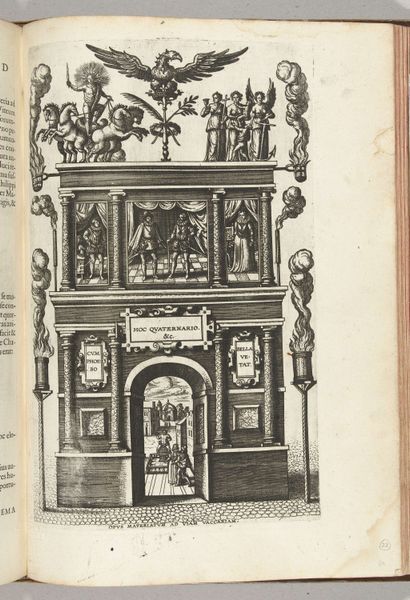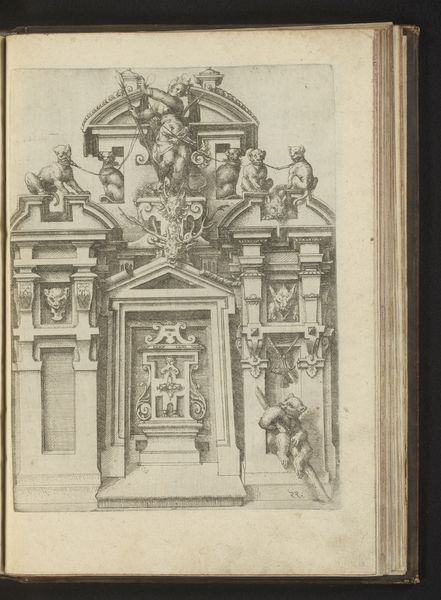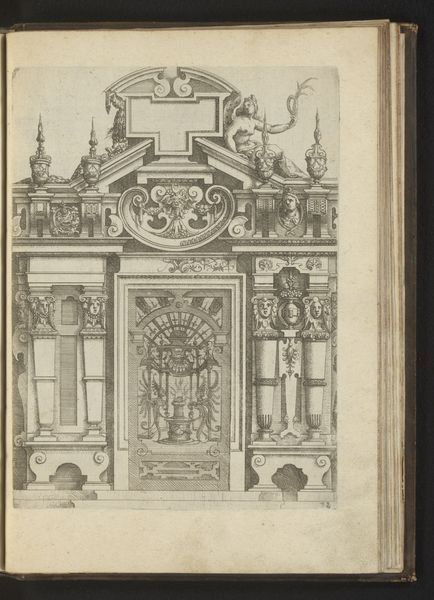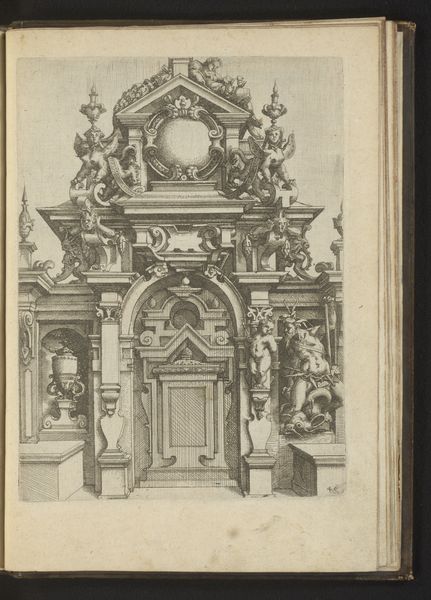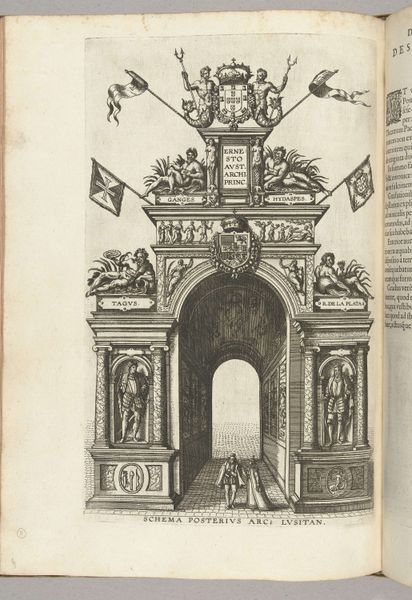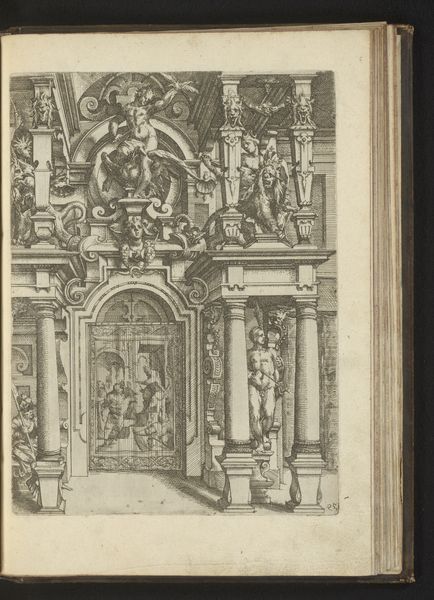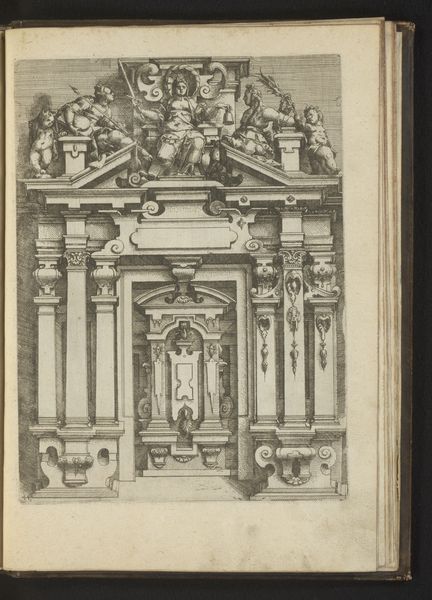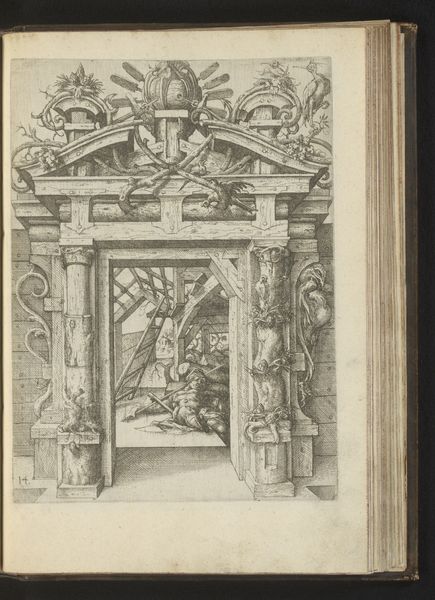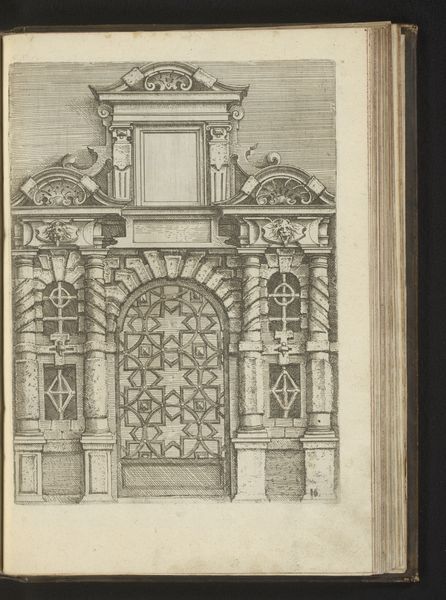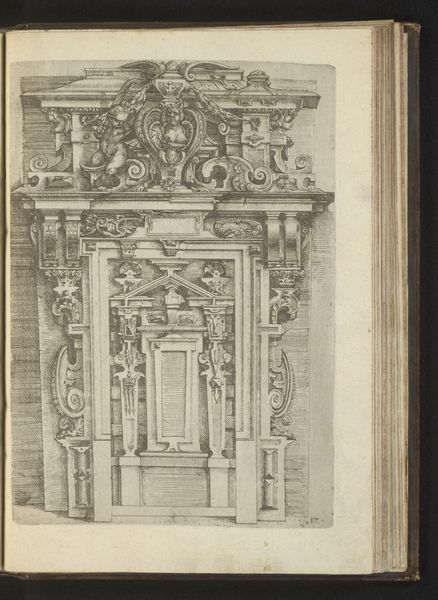
print, etching, engraving, architecture
#
aged paper
#
toned paper
#
medieval
# print
#
etching
#
sketch book
#
form
#
11_renaissance
#
personal sketchbook
#
sketchwork
#
geometric
#
pen-ink sketch
#
line
#
pen work
#
sketchbook drawing
#
history-painting
#
storyboard and sketchbook work
#
sketchbook art
#
engraving
#
architecture
Dimensions: height 324 mm, width 198 mm
Copyright: Rijks Museum: Open Domain
Pieter van der Borcht created this print, Spaanse triomfpoort, in 1594, using engraving. The linear quality comes from the nature of the process itself. To make an engraving, a metal plate, usually copper, is covered with a waxy ground. The artist then scratches away the ground to expose the metal, and the plate is submerged in acid, which bites into the exposed lines. The longer the plate is exposed to the acid, the deeper the lines, and the more ink they will hold. It’s a highly skilled process, demanding careful control. The print shows a triumphal arch. Note the sculptural details, the figures that line the interior, and the coats of arms. This wasn’t just an aesthetic exercise. Triumphal arches like this were powerful statements of political intent, designed to project power. In van der Borcht’s time, printmaking was central to circulating such imagery – and to shaping public opinion.
Comments
No comments
Be the first to comment and join the conversation on the ultimate creative platform.
